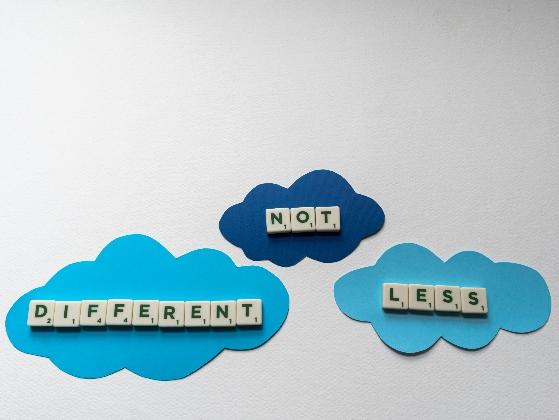NeUUrodiversity
New neurodivergence resources soon available for teaching staff

“Every year, I encountered students with different learning needs and I was hardly feeling sufficiently equipped to deal with them”, says Ozan Ozavci, Associate Professor in History, the initiator of the new page. The idea came about during a discussion with the EDI committee for the Faculty of Humanities. The project is funded by a grant from the Equality, Diversity and Inclusion office (EDI).
Ozavci interviewed several neurodivergent students and staff members for the NeUUrodiversity project. Not all of them feel comfortable sharing their neurodivergence with the world and some expressed feelings of being a burden to their teachers and classmates. They advocate for a more positive perspective on neurodiversity. “This aligns closely with my philosophy on diversity and inclusion, which is to view them as positive assets. Diversity isn’t a challenge but an advantage,” Ozavci remarks.
Ozavci observes that even though the university’s system has improved for neurodivergent students in some regards, such as by allowing extra time during exams and smaller rooms where they can focus more easily, there still isn’t a centralised web page or tool that teachers could consult to help students with special needs. The page will include a best practices dossier, describing what has worked both for students and staff in the recent past.
“About one in ten students have dyslexia, ten percent have a mental illness, nine percent have ADHD, and one in a hundred have Autism. Neurodivergent people get negative feedback on their work more often than other students, about eighty percent of the time. Reading these numbers and seeing that we didn't have this centralised facility drew me toward the project."
Thanks to the grant, Ozavci is now hiring two neurodivergent students for several months. Assistant professor, Mateusz Platos, a neurodiversity expert, will co-coordinate the project alongside him. Dr. Platos will also use the project as part of his own research. “Mateusz has considerable experience, having already developed a similar program at his previous university in Warsaw,” Ozavci notes.
Plain, simple and accessible
The project will be divided into two phases: in the first one, the webpage will the put together and launched through a workshop for students, teachers and other UU staff. The goal is to make the project known across the university. Ozavci: “We are already receiving emails from institutions beyond the university asking us what we are doing and how we are doing it.” Hence the need for a public introduction. The second phase will entail creating reference points, such as websites to consult for more information, for the university staff. Ozavci is not sure if he will be part of the second phase as he believes “there will be more qualified people to take on the flag from there”.
The website will be created and edited according to the ideas and wishes of neurodivergent students themselves. The information will be provided in a straight-forward way, with no pop-ups or distractions, and the font size will be changeable so students with dyslexia can read the text better. “Our plan is to make it as plain, simple and accessible as possible. It will not be a page where you will feel overwhelmed with information”.
The page will contain basic definitions of neurodivergence and the various types of neurodivergence out there. Ozavci: “It won't be a website that addresses all needs, but it will be the bridge through which students will be able to address them”.
Ozavci believes that, especially in the current political climate, the university should take a more proactive stance to protect the interests of its students in collaboration with them: “In my view, the university has an obligation to do its best to give neurodivergent students the best conditions to study. There are so many limitations, but that's why we need to start a conversation and launch projects like this. Our webpage is not going to be perfect, but hopefully in a few years’ time it will be better.”